The Magnificent Seven (PG-13) ★★½
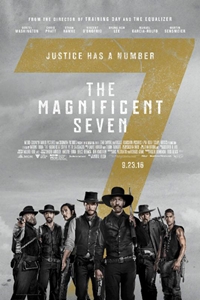 Call it the law of diminishing results. Akira Kurosawa's 1956 classic The Seven Samurai (the first time this story was made into a movie) is a great film - a contender for one of the best 100 motion pictures of all time. (It's at #32 on my personal list.) John Sturges' innovative remake, 1960's The Magnificent Seven, was a considerable step down but still a solidly enjoyable tale. Now, two sequels and one television series later, along comes Antoine Fuqua to do what has sadly become commonplace in Hollywood - take a venerated property and create a middling "re-interpretation" for no apparent reason other than because it's more than 30 years old and has a marketable brand. (Didn't work well for Ben-Hur, did it?) If there's a compelling reason to remake The Magnificent Seven, it can't be found in the 2016 version, a loud, cluttered, and generally disappointing production.
Call it the law of diminishing results. Akira Kurosawa's 1956 classic The Seven Samurai (the first time this story was made into a movie) is a great film - a contender for one of the best 100 motion pictures of all time. (It's at #32 on my personal list.) John Sturges' innovative remake, 1960's The Magnificent Seven, was a considerable step down but still a solidly enjoyable tale. Now, two sequels and one television series later, along comes Antoine Fuqua to do what has sadly become commonplace in Hollywood - take a venerated property and create a middling "re-interpretation" for no apparent reason other than because it's more than 30 years old and has a marketable brand. (Didn't work well for Ben-Hur, did it?) If there's a compelling reason to remake The Magnificent Seven, it can't be found in the 2016 version, a loud, cluttered, and generally disappointing production.
The narrative mirrors that of The Seven Samurai/The Magnificent Seven (1960) albeit with a number of minor changes. The movie opens with an unsettling sequence (arguably the best in the entire film) in which the bad guy, ruthless capitalist Bartholomew Bogue (a deliciously evil Peter Sarsgaard), clomps into the church of a small 1879 frontier town and declares that he will pay $20 per parcel of land and anyone who doesn't like the offer can take the consequences. There's a three week ultimatum involved and he punctuates his threat by turning several citizens into widows and orphans.
One of those widows, Emma Cullen (Hayley Bennett), decides she's not going to passively accept Bogue's demands. So she travels to other towns to recruit a fighting force who can oppose the aggressors. She finds Bounty Hunter Sam Chisolm (Denzel Washington), who brings on board the booze-loving-but-deadly Josh Faraday (Chris Pratt), the wanted Mexican gangster Vasquez (Manuel Garcia-Rulfo), the former Civil War sharpshooter Goodnight Robicheaux (Ethan Hawke) and his Asian compatriot, Billy Rocks (Byung-hun Lee), the famed tracker Jack Horne (Vincent D'Onofrio), and the Comanche exile Red Harvest (Martin Sensmeier). These seven are all who stand between Bogue's ruthless greed and the peaceful men and women of Rose Creek.
It's curious that, although the credits rightly cite The Seven Samurai as being the screenplay's basis, they ignore William Roberts' work on the 1960 The Magnificent Seven, where the story was first repurposed as a Western. Another oversight is the decision not to use Elmer Bernstein's iconic theme (which would be recognized by almost everyone regardless of their age and whether or not they're familiar with the original movie) until the end credits. There are hints and echoes of it throughout but it never breaks through. (This may have something to do with how the music was developed. James Horner wrote bits and pieces of it prior to his death but it was left to Simon Franglen to assemble everything and compose the connective tissue.) Film score buffs will be understandably disappointed.
Of course, it's not just movie music lovers who may find The Magnificent Seven to be lacking. Overall, the production has a generic Western feel to it with little added flavoring to make it worthwhile. The characters are all underdeveloped (the conceit used in the 1960 version of having them bond with townspeople is largely absent here) and the geography is muddled. One key of both The Seven Samurai and the 1960 The Magnificent Seven was to present a clear picture of the terrain and an understanding of where the enemy was at all times. In this movie, there's a lot of shooting and things getting blown up but no cohesion. At no point do we have a good sense of how many enemies there are, how thinned their ranks have been by the Seven's tactics, and whether it's feasible to sneak up on the leaders.
Frequent Fuqua collaborator Denzel Washington (they previously worked together on Training Day and The Equalizer) gets top billing although it's a laconic, low-energy performance that only gains resonance in the final 10 minutes. Chris Pratt brings some comic relief along with his good looks and box office appeal. The other five members of the seven are mainly character actors (Ethan Hawke, Vincent D'Onofrio) or lesser known names. The film's standout is Peter Sarsgaard, who makes Bogue the kind of bad guy we really want to have a gory ending.
Fuqua does a good job with the slow-burn aspect of the build-up. There's a palpable sense of tension in the minutes prior to the major conflict. Unfortunately, the battle itself is a letdown. As in the director's King Arthur, there's a lot of violence but the end result is confused and unsatisfying. The original The Magnificent Seven found a perfect balance between moments of grand triumph and the understated, solemn denouement. This The Magnificent Seven has the dour ending without the high points preceding it. With two better versions of this story readily available, why bother with this mediocre re-telling? "Currently recognizable actors" hardly seems like a good justification.
© 2016 James Berardinelli
To get the full Quicklook Films experience, uncheck "Enable on this Site" from Adblock Plus
box office top 10

Godzilla x Kong: The New Empire Released: March 29, 2024 Cast: Rebecca Hall, Brian Tyree Henry 80M

Ghostbusters: Frozen Empire Released: March 22, 2024 Cast: Paul Rudd, Carrie Coon 15.7M

Dune: Part Two Released: March 1, 2024 Cast: Timothée Chalamet, Rebecca Ferguson 11.1M

Kung Fu Panda 4 Released: March 8, 2024 Cast: Jack Black, Viola Davis 10.2M

Immaculate Released: March 22, 2024 Cast: Sydney Sweeney, Álvaro Morte 3.3M
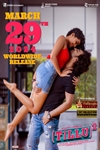
Tillu Square (Hindi) Released: March 29, 2024 Cast: Sidhu Jonnalagadda, Anupama Parameswaran 2.5M
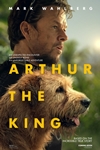
Arthur the King Released: March 15, 2024 Cast: Mark Wahlberg, Simu Liu 2.4M
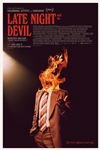
Late Night with the Devil Released: March 22, 2024 Cast: David Dastmalchian, Laura Gordon 2.2M

Crew (Hindi) Released: March 29, 2024 Cast: Kriti Sanon, Kareena Kapoor 1.7M
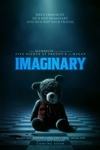
Imaginary Released: March 8, 2024 Cast: DeWanda Wise, Tom Payne (II) 1.4M






